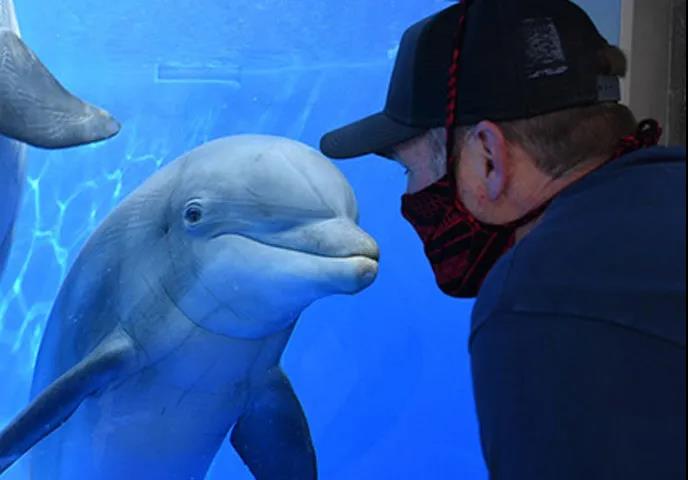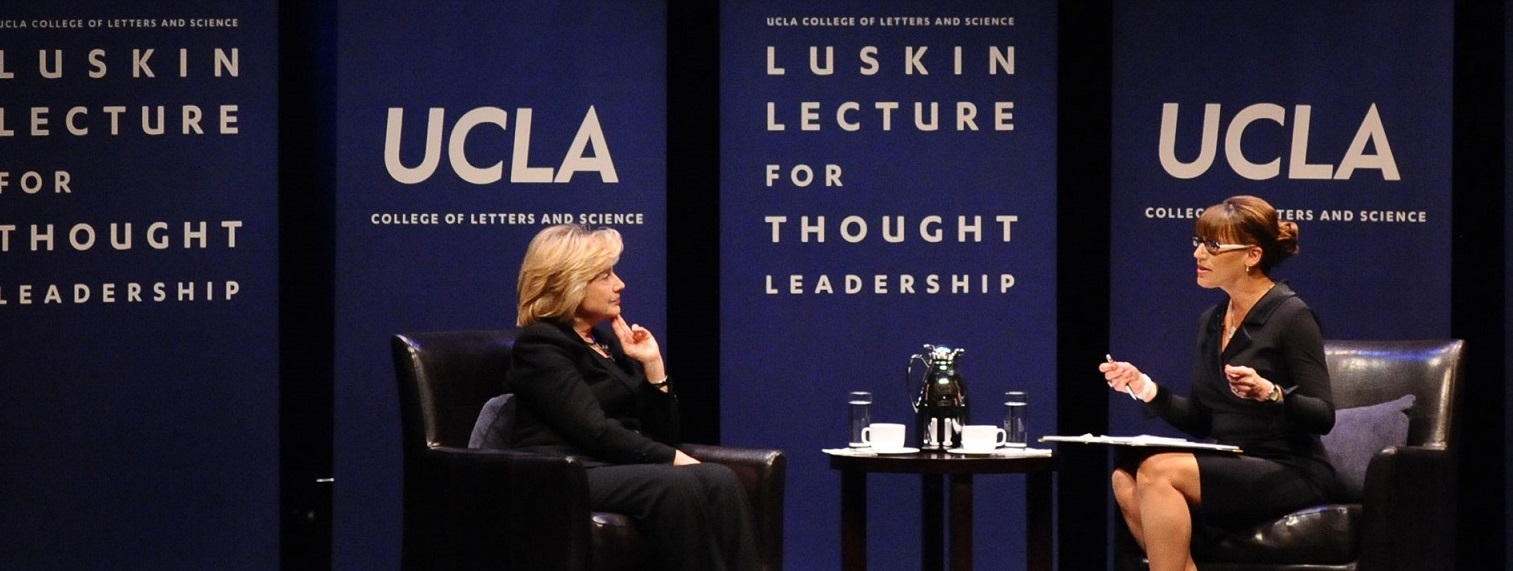
When Terrie Williams began hearing about the wide range of symptoms experienced by patients with COVID-19, she saw a connection between the various ways the disease is affecting people and the many physiological adaptations that have enabled marine mammals to tolerate low oxygen levels during dives.
当Terrie Williams一听说COVID-19患者经历的各种症状时,她看到了该疾病对人们的各种影响,与海洋哺乳动物在潜水时为适应低氧水平表现的许多生理反应间存在联系。
Williams, a professor of ecology and evolutionary biology at UC Santa Cruz, has spent decades studying the physiology of marine mammals and their extraordinary ability to perform strenuous activities while holding their breath for long periods under water.
Williams是加州大学圣克鲁兹分校(UC Santa Cruz)的生态学和进化生物学教授,她花了几十年的时间研究海洋哺乳动物的生理学,以及它们在水下长时间屏息并进行剧烈活动的非凡能力。
“Diving marine mammals experience a lifetime of rapid physiological transitions between normal oxygenation and hypoxia [low oxygen levels],” Williams said. “They’ve got ways to protect themselves and allow their organs to keep functioning while holding their breath for hours at a time, but there’s a whole suite of biological adaptations that had to happen for them to be able to do that.”
Williams说:“潜水的海洋哺乳动物一生都会经历从正常氧合到低氧(低氧水平)的快速生理转变。它们有办法在憋气数小时内保护自己,让器官继续运转,但要做到这一点,它们必须具备一整套的生物适应性。”
Lacking those adaptations, humans are vulnerable to rapid damage in a wide range of tissues when oxygen levels drop due to the effects on the lungs and cardiovascular system of infection with the coronavirus SARS-CoV-2. In a review article published December 3 in Comparative Biochemistry and Physiology, Williams explores how the diving physiology of marine mammals can help us understand the effects of COVID-19.
当冠状病毒SARS-CoV-2感染对肺部和心血管系统的影响导致氧气水平下降时,因为缺乏这套适应,患者的许多组织都容易很快受到损伤。在12月3日发表在《比较生物化学与生理学》(Comparative Biochemistry and Physiology)杂志上的一篇综述文章中,Williams探讨了海洋哺乳动物的潜水生理机能如何帮助我们降低COVID-19的影响。
“It really highlights why it is so important for people to protect themselves from infection with this virus,” she said. “Damage to oxygen-deprived tissues happens fast and can be irreversible, which may account for the long-term effects we are beginning to see in people after coronavirus infections.”
她说:“这确实突出了人们保护自己免受这种病毒感染的重要性。对缺氧组织的损害发生得很快,而且可以是不可逆转的,这可能是我们发现,患者一旦感染冠状病毒,后期出现各种长期问题的原因。”
The heart and brain are especially sensitive to oxygen deprivation, and marine mammals have multiple mechanisms to protect these and other critical organs. In the first place, marine mammals have much higher oxygen carrying capacity than humans due to their greater blood volume and hemoglobin concentrations. In addition, some marine mammals contract their spleen during dives to release a store of oxygen-rich blood cells into the circulation. To avoid blood clots resulting from such high concentrations of red blood cells, many species lack a key clotting factor found in other mammals.
心脏和大脑对缺氧特别敏感,海洋哺乳动物有多种机制来保护心脏和大脑等重要器官。首先,海洋哺乳动物的血容量和血红蛋白浓度要比人类高得多,因此它们的携氧能力要比人类强得多。此外,一些海洋哺乳动物在潜水时收缩脾脏,将储存的富氧血细胞释放到循环中。为了避免由如此高浓度的红细胞引起的血凝块,许多物种缺乏一种在其他哺乳动物身上发现的关键凝血因子。
Other adaptations include greatly increased concentrations of oxygen-carrying proteins such as myoglobin in heart and skeletal muscles and neuroglobin and cytoglobin in the brain. In addition, numerous safety factors and biochemical buffers enable even the most oxygen-dependent tissues in marine mammals to withstand not only low oxygen but also the subsequent reperfusion of tissues with oxygenated blood. In humans, reperfusion after a heart attack or stroke often leads to additional tissue damage.
其他的适应性包括携带氧气的蛋白质浓度大大增加,如心脏和骨骼肌中的肌红蛋白,大脑中的神经红蛋白和细胞红蛋白。此外,众多的安全因素和生化缓冲液使海洋哺乳动物中最依赖氧的组织不仅能够承受低氧,而且能够承受随后的含氧血组织的再灌注。而我们,心脏病发作或中风后的再灌注通常会导致额外的组织损伤。
According to Williams, the solutions that marine mammals have evolved for tolerating hypoxia provide a natural template for understanding the potential for damage to oxygen-deprived tissues in humans.
根据Williams的说法,海洋哺乳动物进化出的耐缺氧的解决方案为理解人们缺氧组织的潜在损伤提供了一个自然的模板。
“Studying marine mammals allowed me to understand what it takes to protect the body when the availability of oxygen is low,” she said. “There are so many ramifications of shutting down the oxygen pathway, and I think that’s what we’re seeing in these COVID patients.”
“通过对海洋哺乳动物的研究,我了解了在氧气供应不足的情况下如何保护身体,”她说。“关闭氧气通道有很多后果,我认为这就是我们在这些COVID - 19患者身上看到的情况。”
Williams is particularly concerned about the so-called “long-haulers” who continue to have symptoms long after they were infected with the coronavirus.
Williams尤其担心那些感染新冠病毒后很长时间仍有症状的所谓“长途旅客”。
“You hear people say it’s just like the flu, but COVID scares the heck out of me because of the potential for long-term damage to the heart and brain,” she said. “When you think about oxygen deprivation and the tissue repair process, it makes sense that many people are having a hard time getting back to normal life, even after a mild infection.”
她说:“你听人们说它就像流感,但COVID - 19把我吓坏了,因为它可能对心脏和大脑造成长期损害。当你想到缺氧和组织修复过程时,很多人很难恢复正常生活是有道理的,即使是在轻度感染之后。”
Williams urges people to do all they can to avoid becoming infected. “Our heart and brain cells are meant to last a lifetime, and we cannot replace them once they are damaged,” she said. “Dolphins and whales have natural protections that humans lack, so we are highly vulnerable to hypoxia.”
Williams敦促人们尽其所能避免被感染。她说:“我们的心脏和大脑细胞注定要持续一生,一旦它们受损,我们就无法替换它们。海豚和鲸鱼拥有人类缺乏的自然保护,所以我们非常容易缺氧。”




